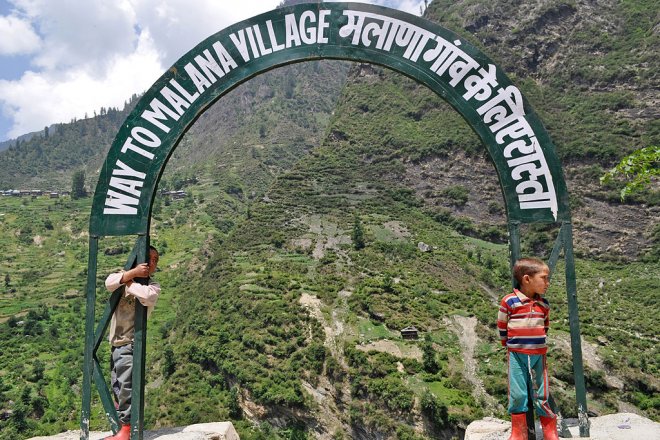
Cannabis, which is banned in India since 1985, has been the only source of livelihood in a small village hidden in the mountains of the country's northern state of Himachal Pradesh, bringing the settlement into direct conflict with the law of the land.
The self-sufficient village called Malana has been producing the plant for centuries now and it is, like in many other small mountain villages, the only source of bread and butter. The cannabis plant is the sole cash crop these villagers depend on as the species is able to withstand extreme weather conditions and are suitable for the specific topography.
According to the Associated Press, local lawmakers say that production and consumption of cannabis have become a part of their culture and tradition and they are not bothered by the law of the country which criminalises consumption o the drug. In India, possessing a kilogram of charas can land a person in jail for at least 10 years.
Cannabis cultivation
Intense labour is required for the cultivation of the drug. The fields are normally situated a little far away from the main settlement and it requires about an hour to reach there. The cannabis buds are hand crushed to carefully juice out the resin. 20 grams crushed cannabis can fetch an amount anywhere from $50 to $150. However, cultivators are in constant threat of police intervention and subsequent destruction of the fields.
"Wheat and other grains don't grow on this land," said Gori Massi, a resident of Malana village and an owner of a cannabis field, according to the news agency. "Nothing else grows here. We have to live like that, and whatever plants we do have are cut down by the police. What can we do?" she added.
Government failure?
Villagers said they have a mutual understanding with the local officials who help them to safeguard their fields. The officers urge villagers to push back their fields away from the village and into forest land. Like this the cultivators can avoid prosecution as the field does not belong to anybody. Maheshwar Singh, a local lawmaker, was quoted by Associated Press as saying that the government needs a different approach to tackle the problem and merely destroying cannabis field will render the villagers helpless. "I feel they have a reason to stick to that plantation because that is the only way they can earn their living," said Singh, as reported.
"The government of India had made a policy that they would be provided some alternative employment. But that we have not been able to do," he added.
The stoner's paradise
It is not only by growing cannabis that the villagers meet their daily requirements, but by also hosting tourists both Indian and foreigners. Malana is increasingly becoming a tourist destination for its reputation of being the 'stoner's paradise'
Malana is mostly famous for producing the intense aromatic Malana cream - a strain of Cannabis which has high oil content. According to Campus Diary, Malana cream is the most expensive form of cannabis. A local hash dealer said that Malana cream is almost ten times the value of gold, reported the website.
Other than high-quality cannabis, Malana is also blessed with spectacular scenic beauty. According to Scoopwhoop, the village is the 'oldest standing democracy' in the world. It also reported that Malanese people believe that they are descendants of Alexander and have their own religion and worship their Devta, Jamlu Rishi.









